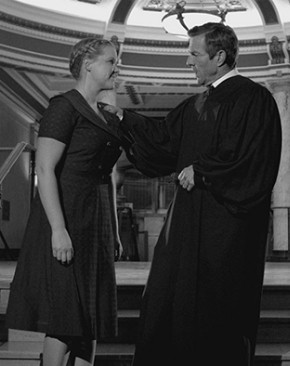Funny girls

Female comedy is having a moment. A moment without a lot of clothing. If you watch Inside Amy Schumer and Broad City, two of Comedy Central’s most successful shows, or Girls on HBO, you might conclude that sex is the only thing young women think about.
Not romance—sex. In these comedies, sex is not part of a conventional romantic comedy narrative, leading to marriage or serious commitment, but a source of comedic material in and of itself. The graphic details of sexual experiences are the backbone of these comedies.
There is something fantastically refreshing about this. If it’s alarming to hear a whole routine about NuvaRings, dildos, and cunnilingus, think how many careers have been built around the woes of male genitalia. These women are just playing catch-up.





